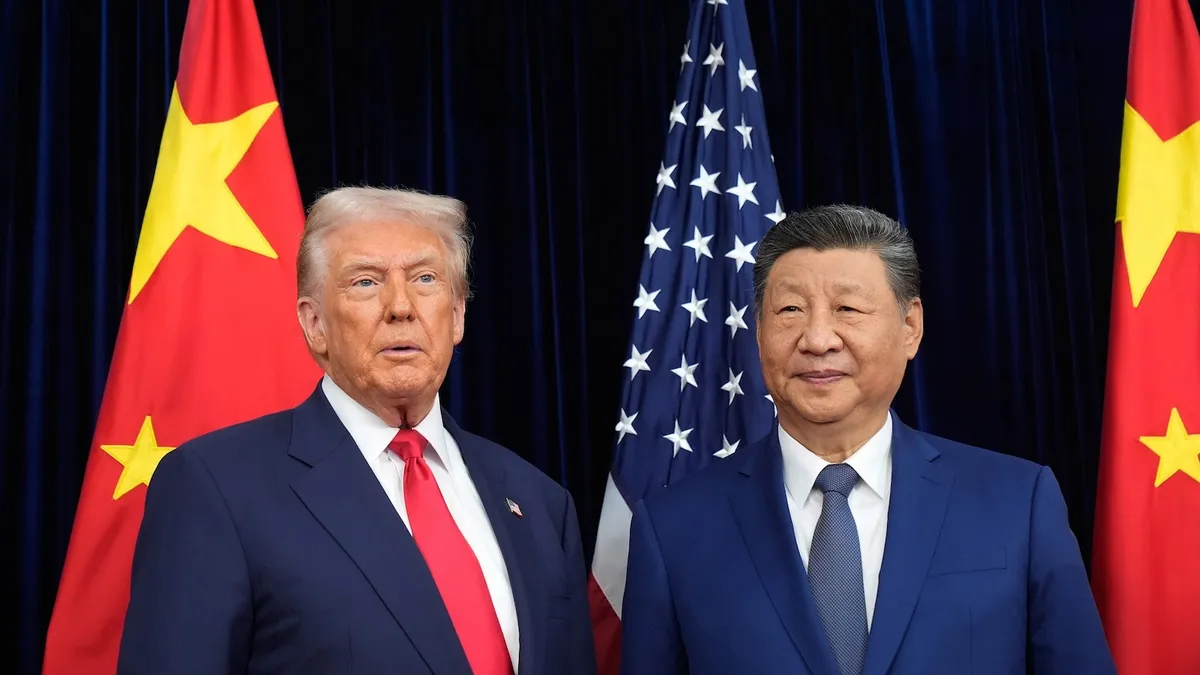
On Wednesday night, President Donald Trump sparked significant discussion regarding the longstanding U.S. prohibition on nuclear weapon testing. This prohibition has been in place for decades, and experts warn that resuming tests could pose significant dangers to global populations and provide adversaries with opportunities to enhance their nuclear capabilities.
Minutes before a scheduled meeting with Chinese President Xi Jinping, Trump took to his social media platform to announce that he has instructed the Department of War to begin testing U.S. nuclear weapons "on an equal basis" with other nations. He emphasized that this testing process would commence immediately, raising alarms among security experts and policymakers.
The White House has not clarified whether Trump’s statement pertains to the detonation of nuclear weapons, which has only been conducted by North Korea in the 21st century, or if he was referring to the testing of delivery platforms, which is a routine practice. When asked about Trump's comments, Vice President JD Vance stated that the president's social media post speaks for itself, highlighting the necessity of ensuring the functionality of the U.S. nuclear arsenal.
During his confirmation hearing to lead U.S. Strategic Command, Vice Adm. Richard Correll echoed the sentiment of caution regarding Trump's remarks. He noted that he would not interpret the president's comments as a direct call for explosive nuclear testing, especially given that neither China nor Russia has conducted a nuclear explosive test recently. Correll's interpretation suggests that the U.S. is unlikely to break the nearly 30-year freeze on nuclear test explosions.
The last U.S. nuclear weapon test occurred in 1992, following a ban signed by President George H.W. Bush that included both underground and atmospheric testing. Although the U.S. and Russia are signatories to the Comprehensive Nuclear-Test Ban Treaty of 1996, the treaty has not entered into force due to insufficient ratifications from key nations, including the U.S. and Russia. Despite this, a strong norm against nuclear testing has persisted internationally.
Experts like Kelsey Davenport, director for nonproliferation policy at the Arms Control Association, emphasize that the global nonproliferation regime is at a critical juncture. She warns that if any state resumes nuclear testing, it could set a precedent that encourages other countries to pursue their own nuclear capabilities, thereby undermining decades of disarmament efforts.
It remains unclear what prompted Trump’s recent comments on nuclear testing. Previously, he criticized Russian military exercises involving potentially nuclear-capable arms, indicating that U.S. nuclear capabilities are strategically positioned near Russia. In response, Dmitry Peskov, spokesperson for Russian President Vladimir Putin, asserted that Russia's military activities are routine. He warned that if the U.S. were to resume nuclear testing, Russia would respond accordingly, highlighting the delicate balance of nuclear strategy between these global powers.
Davenport further explained that a resumption of U.S. nuclear testing could provide Russia and China with opportunities to enhance their nuclear arsenals, potentially allowing them to catch up with U.S. capabilities. She noted that the technological advantages held by U.S. National Labs have been crucial in maintaining nuclear superiority. However, reinitiating nuclear tests could jeopardize that advantage, posing a risk to global security.
Senator Jack Reed, a leading Democrat on the Armed Services Committee, expressed concern over Trump's comments, interpreting them as a signal for nuclear explosive testing. Reed reminded lawmakers that the U.S. conducted over a thousand nuclear tests during the Cold War, far exceeding the number conducted by Russia and dwarfing China's total of 47 tests. The extensive testing history has allowed the U.S. to develop sophisticated models and simulations, ensuring the reliability of its nuclear arsenal without the need for additional tests.
In conclusion, as the global conversation around nuclear testing intensifies following Trump's remarks, it is crucial to consider the potential implications for international security and nonproliferation efforts. The future of nuclear policy remains uncertain, and the actions taken in the coming months could have lasting effects on global stability.